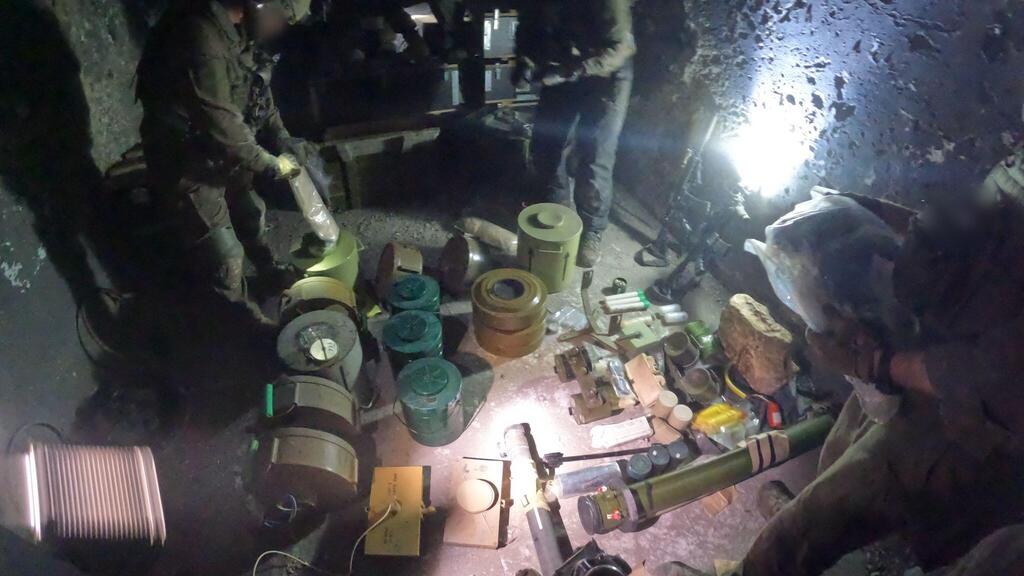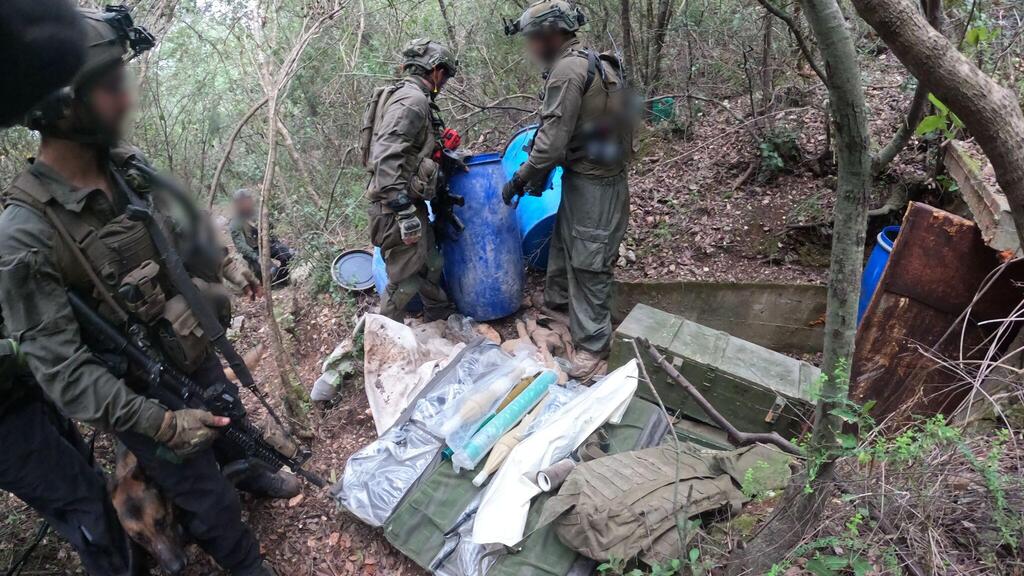Getting your Trinity Audio player ready...
IDF shows Hezbollah infrastructure in South Lebanon
(Yoav Zitun)
The IDF offensive which began late on Monday, is not aimed at conquering South Lebanon and pushing Hezbollah north of the Litani River. It is also not to create a buffer zone under IDF control.
The operation aims to clear the dense terrain and wooded areas where Radwan forces operate and where Hezbollah has launch pads for strikes into Israeli territory and from which it has fired short-range rockets and missiles, that could be used as preludes to an invasion.
The military has been operating there for the past two months, covertly, and has even sustained injuries. Most occurred when the Air Force bombed Hezbollah's infrastructure and set fire to the dense brush around it. The troops brought back vast amounts of munitions, equipment, All-Terrain Vehicles (ATV,) ladders, communication devices and documents prepared for Hezbollah.
Hassan Nasrallah's plan was for Radwan units numbering 4,000 to 6,000 men, disguised as civilians, to enter the area where the large amount of equipment awaites them, invade border area communities and abduct soldiers.
The aerial bombardments pushed the Rawan forces back and only a skeleton force remained while most of the fighters withdrew into the villages in the South. A month ago, the military stopped collecting Radwan force equipment and blew it up where it was found, sometimes very near the border.
The IDF forces now must systematically clean the area, to prevent Hezbollah sniper and anti-tank missile fire toward troops or communities, and to disrupt the terror group's intelligence gathering.
The move was approved by the United States. Defense Minister Yoav Gallant outlined the plan in his conversations with U.S. Secretary of Defense Lloyd Austin, claiming the limited incursion means to prevent war and return Israelis safely to their homes in the north. It is a response to imminent threats.
The Biden administration considers it a legitimate operation. To make clear that Israel is not about to conquer Lebanon or destroy Hezbollah, and to ensure Iran understands its limitations and does not feel compelled to interfere, U.S. officials say publicly that this is a mini-incursion while they brief reporters of its details.
The IDF fighting force moves carefully, aware of the danger of exposure to anti-tank missiles Hezbollah's primary weapon. An infantry division which includes special forces has been deployed, with tanks providing cover. Movement at night makes anti-tank missile fire more difficult.
The troops also have air cover and IDF artillery has targeted villages and areas where Hezbollah forces are detected, while the Arabic language military spokesperson urges Lebanese villages to evacuate to safety.
The offensive will take as long as needed, to reach Hezbollah's infrastructure and positions and destroy them, Israeli officials say. Security forces remain on alert for an Iranian attack that has been expected since the assassination in Tehran, of Hamas leader Ismail Haniyeh in July.
Iran could respond either in a missile and drone strike like the one carried out in April, by attempting to target Israeli officials inside Israel, or by attacking Israeli and Jewish people and institutions abroad.
Officials think an attack on Israel from Iran is the more likely option so that their revenge is most evident. Nasrallah's assassination last week painted them as weak in the eyes of their proxies and their axis could fall apart.
Still, some in Tehran, including the newly elected president Masoud Pezeshkian, prefer improved ties with the U.S. that would improve Iran's struggling economy.
The American announcement that more troops were being deployed to the region was meant to deter Iran from carrying out an attack.








